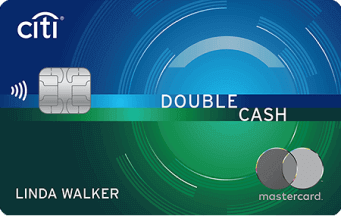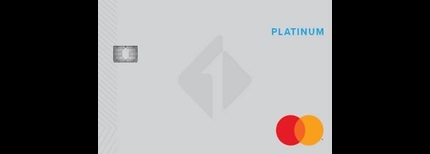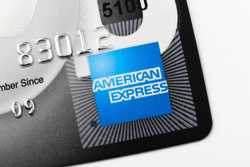- Pre-qualification tool.
- No security deposit.
- Cash back between 1% and 2%, depending on the card you qualify for.
Personal Finance
Our evaluations and opinions are not influenced by our advertising relationships, but we may earn a commission from our partners’ links. This content is created by TIME Stamped, under TIME’s direction and produced in accordance with TIME’s editorial guidelines and overseen by TIME’s editorial staff. Learn more about it.
With fair credit, there are fewer options for credit cards. Be prepared to see higher fees, higher APRs, and fewer rewards. With that in mind, don’t settle for a rotten credit card. You still have good options if you have a fair credit score. We've compiled a list of the best credit cards for people with an average or fair credit score from our partners. Here are our recommendations.
Our recommendations
Best for prequalification: Mission Lane Cash Back Visa® Credit Card
Mission Lane Cash Back Visa® Credit Card
Mission Lane Cash Back Visa® Credit Card
Why we like it: When you have a lower credit score, the last thing you want is for it to dip because of too many hard inquiries. The Mission Lane Cash Back Visa® Credit Card offers a pre-qualification inquiry that doesn’t impact your credit score. You’ll be able to see which terms you qualify for—including APR, annual fee, rewards rate, and credit limit. If you accept the terms, you’ll submit a full application for a hard credit check.
Pros:
Cons:
- Terms are unclear until you apply.
- 3% foreign transaction fees.
- APR can be as high as 33.99%.
- May be charged an annual fee up to $59, depending on which card you qualify for.
Read our full review here.
Best for travel: card_name
Capital One QuicksilverOne Cash Rewards Credit Card
Capital One QuicksilverOne Cash Rewards Credit Card
Why we like it: The card_name earns 5% cash back on hotels and rental cars booked through Capital One Travel and 1.5% cash back on everything else. However, it has a annual_fees annual fee and a reg_apr,reg_apr_type APR, so be sure to pay off your balance each month to avoid high interest charges.
Pros:
- Unlimited 1.5% cash back.
- foreign_transaction_fee foreign transaction fees.
- High earning rates on hotels and rental cars booked through Capital One Travel.
- Automatic credit line reviews.
Cons:
- High APR.
- annual_fees annual fee.
- Redemption options limited to a statement credit or mailed check.
Read our full review here.
Best for students: card_name
Capital One Savor Student Cash Rewards Credit Card
Capital One Savor Student Cash Rewards Credit Card
Why we like it: Students can earn 3% cash back on categories where they may spend the most: dining, entertainment, groceries (except at retailers chains like Walmart or Target), and certain streaming services. The cash back rate and annual_fees annual fee are ideal for students who are just starting to build their credit. Borrowers with a limited credit history may be able to qualify for this card.
Pros:
- annual_fees annual fee.
- No security deposit.
- Cash-back rewards.
- $50 bonus.
- No foreign transaction fees.
Cons:
- High APR.
- High balance transfer fee.
Best for cash back: Citi Double Cash® Card

Citi Double Cash® Card
Citi Double Cash® Card
Why we like it: The Citi Double Cash® Card earns 2% cash back on all purchases, making it one of the best credit cards for cash-back earnings for borrowers with fair credit. Cardholders can earn 1% cash back when making a purchase and 1% when paying it off. There is a balance_transfer_intro_apr,balance_transfer_intro_duration for balance_transfer_duration_months (followed by intro_apr_rate,intro_apr_duration) for borrowers who qualify. Just keep in mind balance transfers don’t earn cash back.
Pros:
- 0% intro APR for 18 months.
- No annual fee.
- Generous cash back rewards.
Cons:
- High APR.
- High cash advance fee.
- High balance transfer fee.
Learn more from our full review.
Best for low interest: Navy Federal Credit Union Platinum Card

Navy Federal Credit Union Platinum Card
Navy Federal Credit Union Platinum Card
Why we like it: If you’re looking for a credit card with a low APR, you’ll want to take a look at the Navy Federal Credit Union Platinum Card. The APR ranges from 8.24% to 18% (variable)*, which is about as low as it gets for a credit card that accepts some borrowers with fair credit. You do need to be a member of the Navy Federal Credit Union. You can join online if you meet the requirements.
Pros:
- No annual fee.
- No balance transfer fee.
- No cash advance fees.
- Low APR.
Cons:
- Need to be a member of Navy Federal Credit Union.
Best for paying off debt: card_name
Upgrade Cash Rewards Visa®
Upgrade Cash Rewards Visa®
Why we like it: The card_name is a unique credit card for fair-credit borrowers. When purchases are made, they’re automatically put into a payoff plan like a traditional loan. This makes the minimum payment higher, but pays off the credit card much sooner. To get the lowest rates, you must set up AutoPay. The credit limit ranges between $500 and $2,000. New cardholders are also eligible for a $200 bonus when they open a Rewards Checking Plus account.
Pros:
- No security deposit required.
- Automatically set up for paying off the balance.
- $200 bonus available for setting up a connected checking account.
Cons:
- Maximum credit limit is $2,000.
- Must set up AutoPay.
- annual_fees annual fee.
Read our full review to learn more.
Best for low fees: The First Tech Platinum Rewards Mastercard®

The First Tech Platinum Rewards Mastercard®
The First Tech Platinum Rewards Mastercard®
Why we like it: Hate fees? So do we. The The First Tech Platinum Rewards Mastercard® doesn’t charge many fees that are typical of most cards, such as: a balance transfer fee, foreign transaction fees, cash advance fee, or an annual fee. The APR is low for a credit card and ranges from 12.24% to 18%. Other benefits include baggage and trip insurance, purchase assurance, airport concierge, and travel emergency assistance.
Pros:
- No annual fee
- No balance transfer fee
- No foreign transaction fees
- Low APR
Cons:
- No rewards
- No new cardholder bonus
- No introductory low APR
Best credit cards for fair credit comparison chart
| Card name | Intro APR | Annual fees | Credit score | Bonus rewards |
|---|---|---|---|---|
intro_apr_rate,intro_apr_duration | annual_fees | Fair, Good | bonus_miles | |
intro_apr_rate,intro_apr_duration | annual_fees | credit_score_needed | bonus_miles | |
intro_apr_rate,intro_apr_duration | annual_fees | credit_score_needed | bonus_miles | |
intro_apr_rate,intro_apr_duration | annual_fees | credit_score_needed | bonus_miles | |
intro_apr_rate,intro_apr_duration | annual_fees | credit_score_needed | bonus_miles | |
intro_apr_rate,intro_apr_duration | annual_fees | credit_score_needed | bonus_miles | |
intro_apr_rate,intro_apr_duration | annual_fees | credit_score_needed | bonus_miles_full | |
0.99% intro APR on Balance Transfers for 12 months | $0 | Excellent, Good, Fair | N/A | |
intro_apr_rate,intro_apr_duration | annual_fees | credit_score_needed | bonus_miles | |
N/A | $0 | Excellent, good, fair, poor | 10,000 bonus rewards points |
Our Methodology
We chose the best credit cards for fair credit from more than 40 cards. To be considered, credit issuers must have stated consideration of fair credit borrowers. However, it’s not a guarantee that borrowers will be approved for a card. APRs, rewards, annual fees, and other card features that help fair credit borrowers were also taken into account.
How to pick the best credit card for fair credit
Consumers with fair credit need to decide what their priorities are in picking the best credit card that works for their circumstances.
Decide what you value
Are you looking to earn cash back or other rewards while you build your credit score? Are you looking for a $0 annual fee card, low interest rates, or are you simply looking for a credit card that will approve you so you can begin building your credit?
Nailing down what you want can help you select a card that’s geared toward your particular circumstances.
Compare credit card offers
When you look at credit card offers side by side, it’s clear that some may offer what you’re looking for more than others. Check out the APR, annual fees, rewards structure, sign-up bonus, and other features that help fair credit borrowers.
See what you qualify for
With some cards, it’s possible to see if you qualify for a card before a hard credit check. It’s called either a “soft check” or “prequalification” and can be very useful in helping you make a decision about a card without impacting your credit score.
What to know before applying for a credit card
Credit card debt will drag down your finances further than you can imagine, even if you have experience managing debt and even if you consider yourself a responsible borrower. Before you get a credit card, make sure you have a plan in place for how you’re going to use it. That plan should consider how your credit card usage is going to build, rather than hurt, your credit score.
How applying for a credit card affects your credit score
You’ve probably heard that applying for a credit card can negatively affect your credit score. There is some truth to this, but the credit application is a small part of your credit score. Using credit responsibly—meaning, you keep your credit utilization low and pay on time every month—has a greater impact on your credit score than a single credit card application.
High credit card interest
With fair credit, you may only be approved for a small credit limit. It may not meet your needs, but this is your time to prove that you’re capable of handling credit responsibly. Be sure you’re paying off the charges you make on the card every month. Paying credit card interest around 30% will sink your finances.
Set up autopay to build your credit score
At some point, you’ll want to move on from your credit card to one with better rewards and better terms. To get your credit score looking pretty, do yourself a favor and set up autopay. This will help your credit history become squeaky clean and boost your credit score.
What to avoid with credit cards for fair credit
Not all cards are created equal, and this is especially true of credit cards geared towards those with fair credit. Here’s what to avoid:
High fees and APRs
Some fees may be necessary, but there are cards that charge excessive fees without offering much in return. You can find cards that offer either a competitive APR or a minimal annual fee.
Rewards cards that don’t have good redemptions
You may see card offers that claim to have a travel rewards program, but when you look at the fine print and the details, the redemptions are limited.
Carrying a balance
Pay off the card in full each month. This is worth saying multiple times because it is so important. Carrying credit card debt is expensive and prevents you from reaching your financial goals. Don’t buy it if you can’t pay off your statement in full.
Applying for any card
Be purposeful in choosing the card(s) you apply for. Too many credit applications might pull down your credit score far enough that your odds of approval will decrease further. Read up on what cards are best for your credit score and work within that framework.
Alternatives to credit cards for fair credit
If you’re looking for financing, a credit card isn’t the only vehicle to get you there.
- Personal loans: A personal loan is an installment loan issued through a lender. They will conduct a credit check, and approve or deny the amount you request. Some lenders offer soft credit checks that don’t affect your score.
- Payday loans: A payday loan is short-term financing that advances money to you that you promise to repay when your next paycheck comes in. Due to their very high APRs, payday loans should only be used as a last resort, and are often considered predatory lending.
- Home equity loan: If you own a home and have a significant amount of equity in it, you may be able to get the funds you need from a home equity loan or home equity line of credit (HELOC). Rates are much lower than those of a credit card because you are putting up your home as collateral.
- Title loans: If you own your vehicle outright, it may be possible to get a loan against the value of it. These loans are also very high cost.
- Private lending: It’s not just the bank of mom and dad you can turn to for money. There are also private lenders you may be able to find.
TIME Stamp: Fair credit shouldn’t hold you back
Fair credit consumers may not find a credit card they love straight out of the gate. It might take time to build up your credit before you can apply for premium cards that offer the best rewards or the best interest rates. But you also don’t have to settle for a truly awful card that doesn’t help you. There are credit cards designed for people with fair credit to meet their needs, set up autopay so your payments are reported on time, and start building credit for a better tomorrow.
Frequently asked questions (FAQs)
What's the easiest credit card to get with fair credit?
Secured cards may be the easiest to qualify for because they allow you to put down a deposit that acts like your credit limit. Some cards to consider include the OpenSky Secured Visa Credit Card and the Secured Chime Credit Builder Visa Credit Card.
Which credit cards can I get with fair credit?
Fair credit borrowers can apply for a variety of credit cards. We recommend the cards featured above.
Which credit card is best for a 620 credit score?
The credit card that works with your spending habits and helps build your credit is the best credit card when you have a 620 score.
What credit cards can I get with a 600 credit score?
If you’re looking for credit cards with a 600 credit score, you may want to look into secured cards, credit-building cards, or student cards. Check with online lenders and credit unions to see if these types of cards are a fit for your needs.
The information related to Citi Double Cash® Card has been collected by TIME Stamped and has not been reviewed or provided by the issuer or provider of this product or service.
The information presented here is created by TIME Stamped and overseen by TIME editorial staff. To learn more, see our About Us page.
Featured Articles

Business Platinum Card from American Express Review 2025
Learn more about the American Express Business Platinum Card, its many benefits, and who it’s right for.

Chase Freedom Unlimited vs. Citi Double Cash Card: Why You'll Earn More with Freedom
Both cards are without an annual fee and feature generous rewards programs. But Freedom Unlimited provides a competitive edge with its cash back welcome bonus.

British Airways Visa Signature® Card Review 2024
The British Airways Visa Signature® card features a lucrative bonus and valuable benefits, but it’s not perfect for everyone. Learn more.

